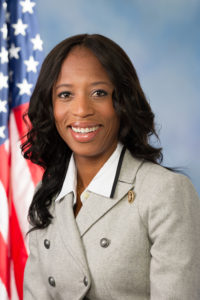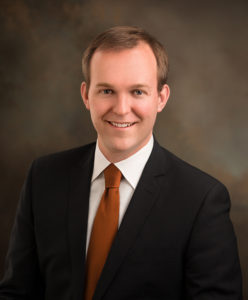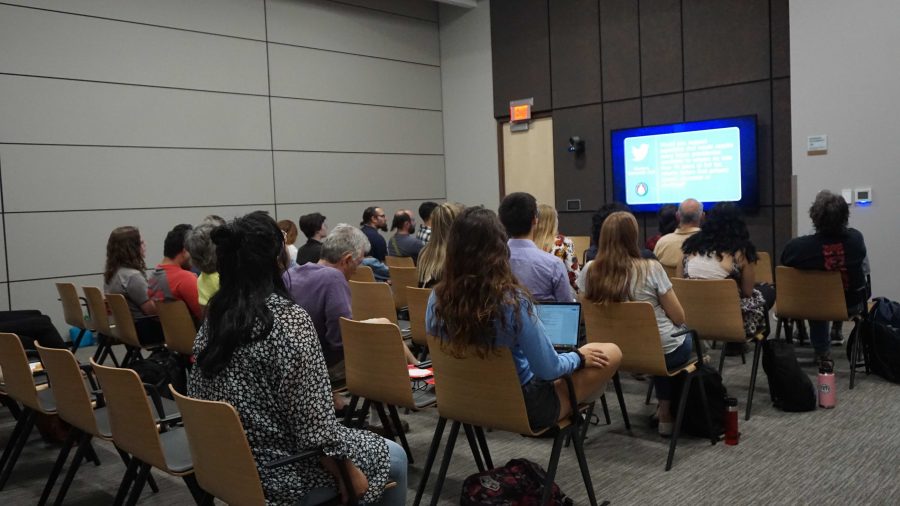As ballots were mailed out across the state this week, Rep. Mia Love, Republican, and Salt Lake County Mayor Ben McAdams, Democrat, faced off in a combative debate at Salt Lake Community College. This was the only debate for the 4th Congressional District race and was hosted by the bipartisan Utah Debate Commission.

The day of the debate, the Hinckley Institute of Politics released a poll showing Love and McAdams tied with 46 percent of the vote each and the remaining 8 percent undecided with a +/- 4.9 percent margin of error. This was the first time a nonpartisan poll showed challenger McAdams tied with incumbent Love. The Cook Political Report, a nonpartisan organization, ranks the 4th Congressional District as R+13, meaning the district is generally 13 percent more Republican than Democratic. However, Utah has seen the largest drop in President Donald Trump’s approval rating since his election out of any state leading many to believe that the race will be more competitive than is usual for such a Republican-leaning district.
The competitiveness of the race resulted in early mudslinging, discussing attack ads and campaigns becoming increasingly negative. The race first saw its descent into negative campaigning last spring with Love attacking McAdams for supporting “unrestricted abortion,” which McAdams fervently denies. Last month Love’s campaign released attack ads tying McAdams to the Clintons and accusing him of raising taxes in Salt Lake County. McAdams responded with ads attacking Love for taking one million dollars in illegal campaign contributions. The Federal Elections Commission (FEC) is currently investigating if the money Love raised for a primary election was illegally raised.
That negativity carried over into Monday night’s debate as they focused again on attacking their opponent and defending themselves from allegations the other made. McAdams repeatedly claimed that Love voted to cut funding for or eliminate federal programs namely, Pell Grants, federal student loans, and DACA. McAdams also claimed that Love failed to take action against the separation of families at the border, against the Trump administration’s tariffs and for the implementation of medicinal cannabis. Love challenged McAdams to name specific bills where she voted against those programs. McAdams could not, instead saying that those could be provided later.
Love repeatedly said that if McAdams ousted her, Nancy Pelosi would become Speaker of the House. In response, McAdams said that he would not vote for Pelosi. Love also attacked McAdams for not living in the 4th Congressional District, at one point asking him who he will vote for in Congress. McAdams said that he represents and listens to the people of Salt Lake County whom Love has ignored. McAdams also repeatedly attacked Love for not holding a town hall open to the public. Love said that she has repeatedly held open office hours and telephone town halls. McAdams asked voters to consider when they last heard about a Mia Love town hall open to the public and in person.
In her closing comments at the end of the debate — giving McAdams no time to rebut — Love said that an analyst from the FEC called her campaign saying that she took no illegal campaign contributions. The FEC has not yet reached a decision on the formal complaint brought by the progressive organization the Alliance for a Better Utah. Furthermore, the FEC said that any formal decision would come in the form of a letter which would be posted online and that analysts could not make statements on the record.

The structure of the debate was inconducive to having a factual and civil conversation. Multiple times, each candidate failed to answer questions and were not called out by the moderator, Doug Wright, nor were candidates repeatedly admonished for going over their allotted times. As a result, when asked a question about their stance on an issue, the candidates failed to give it and instead attacked their opponent about tangential issues.
The Hinckley Institute of Politics hosted a watch party attended by a few dozen students of the U. After the debate, the students were asked to show by raising their hands if the debate changed their mind about who to vote for. None did.
Sam Stamos, a senior majoring in Political Science and Writing and Rhetoric Studies, attended the watch party and said that although he felt the candidates could have been more civil, “this election is so important. I found it important to show up and see what state leaders’ answers to policy questions are.”
Ballots have been mailed out by county clerks in Utah. They can be mailed in but must be postmarked the day before Election Day. Ballots can also be dropped off at official drop boxes or at any polling place on Election Day, Tuesday, Nov. 6th. You may also vote in person and, for the first time, you may register to vote on Election Day. To register to vote, check your registration or to see who and what issues are on your ballot, visit vote.utah.gov.
Disclaimer: The author has interned in Salt Lake County Mayor Ben McAdam’s Office of Legislative Affairs and in Representative Mia Love’s Washington, D.C. office.


